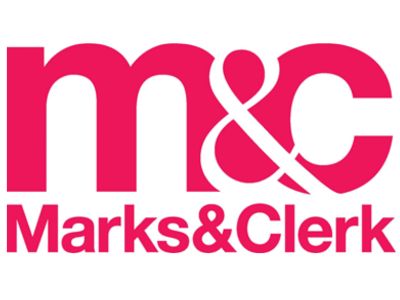Brussels recast
The Brussels I Regulation has been in force, under various names, since 1973 and defines general rules on the jurisdiction of the national courts within the EU. The Unified Patent Court (UPC) has exclusive competence over certain types of patent disputes and the Brussels regulation was recast (herein Brussels recast) to define the jurisdiction of the UPC amongst the EU courts.
In this decision, the UPC considered its jurisdiction under Brussels recast and the Unified Patent Court Agreement (UPCA) with regard to parallel national revocation proceedings that had been initiated before the entry into force of the UPCA.
The original articles of Brussels recast (important for this decision, particularly Arts. 29-32) were formulated to prevent conflicts of jurisdiction between national courts of EU member states. The UPC is not a court of a member state in this sense but is, instead, considered a “common court”. Additional articles (Arts. 71a-71d) were introduced to clarify the international jurisdiction of the UPC.
Nokia Technology GmbH v. Mala Technologies Ltd.: background
In May 2024, the Paris Central Division of the UPC issued a decision concerning the jurisdiction and the applicability of Brussels recast in the context of a patent revocation action brought before the UPC.
Before the UPC opened its doors, Nokia Solutions and Networks GmbH & Co. had filed a revocation action with the German Federal Patent Court. The resulting decision is presently under appeal.
Nokia Technology GmbH filed a revocation action against the same Mala patent at the UPC central division.
Mala filed a preliminary objection challenging the jurisdiction of the UPC in the revocation, arguing that the case should instead be handled under the jurisdiction of the German national courts in light of the earlier revocation action filed there.
Jurisdiction and application of Brussels recast
The UPC rejected the argument that it lacked jurisdiction, observing that, though Arts. 29-32 of Brussels recast are not directly applicable to the UPC (as illustrated by the need for Arts. 71a-71d), the scope and manner of application of Arts. 29 to 32 to the UPC are determined and appropriately established by Arts. 71a-71d, particularly Art. 71c, and the UPC agreement.
The UPC emphasized that Art. 71c(2) specifically addresses the transitional period (as defined by Article 83 UPCA) and applies Arts. 29 to 32 only to proceedings initiated in both the UPC and a court of a Member State party to the UPCA during this period. That was not the situation in this case as the German revocation action was filed prior to the UPC’s operational start. In this regard, the UPC refused to extend the scope of Art. 71c(2) beyond its literal meaning – the wording “during the transitional period” cannot be read to mean “before the transitional period.”
Parallel proceedings and risk of conflicting judgments
The UPC considered that the interests of claimants initiating revocation proceedings before and after the entry into force of the UPCA are distinct. It reasoned that a party initiating proceedings in a national court before the entry into force of the UPCA should not be barred from filing a lawsuit before the UPC because, at the time of initiating the national proceedings, it was not clear if and when the UPCA would enter into force and when the UPC would become operational. At that time, a claimant could not make a choice between the UPC and a national court. In contrast, such a choice would have been available to a claimant who initiated proceedings during the transitional period.
On the risk of conflicting judgments, the UPC considered that the independence of national and international courts carried with it an innate risk of potentially contradictory judgments being issued by the various courts. However, that risk is merely the result of the sovereignty of the respective jurisdictions. The UPC considered it reasonable to assume that this “general rule of sovereignty of each national and international jurisdiction” was considered by the legislators when formulating the UPCA.
No stay of proceedings
Mala Technologies requested a stay of proceedings until the German Federal Court of Justice made a final decision on the German revocation appeal. However, the UPC denied this request, stating that there was no legal basis for such a stay under either the UPCA or the UPC’s Rules of Procedure.
Implications
This decision clarifies the interpretation of transitional provisions under the Brussels I Regulation (recast) in the context of the UPC’s jurisdiction. It underscores the UPC’s authority and jurisdiction in handling patent revocation cases to which these provisions apply, even when parallel proceedings exist in national courts. This said, the decision is presently under appeal, with Mala suggesting referral of questions of interpretation of Arts. 71b and 71c to the Court of Justice of the European Union.

Written by Marcus Riby-Smith
Managing Associate, Marks & Clerk

Written by Ali Raja
Trainee Patent Attorney, Marks & Clerk

Written by Thomas Prock
Partner, Marks & Clerk
You may also like…
Pravin Anand conferred with the APAA Enduring Impact Award
Pre-eminent IP Lawyer and Managing Partner of Anand and Anand, Mr Pravin Anand, has been conferred with the...
The quiet power of confidentiality clubs in SEP litigation
In standard essential patent (SEP) disputes, especially those involving FRAND (Fair, Reasonable, and...
A $10 million patent win reduced to a $1 lesson in damages
In a decision that will resonate as a stark warning to patent litigants, the US Court of Appeals for the Federal...
Contact us to write for out Newsletter














